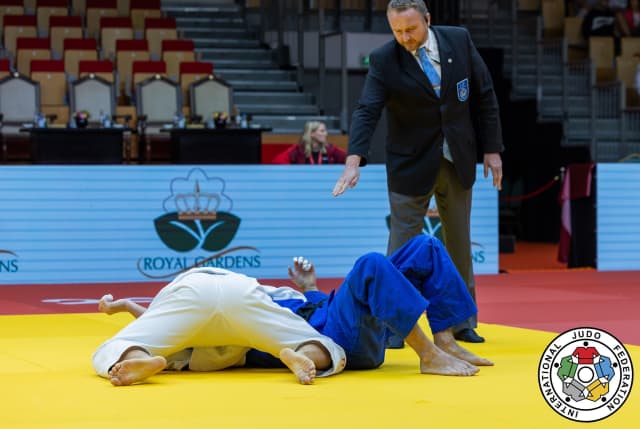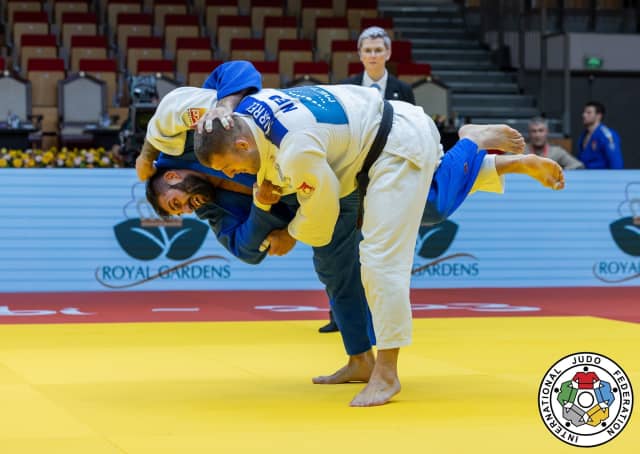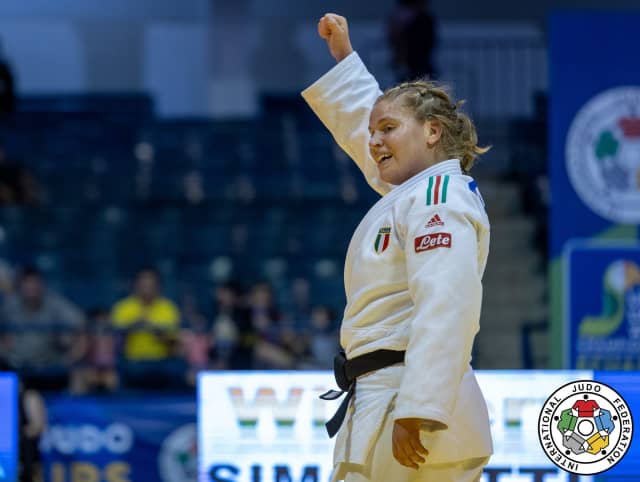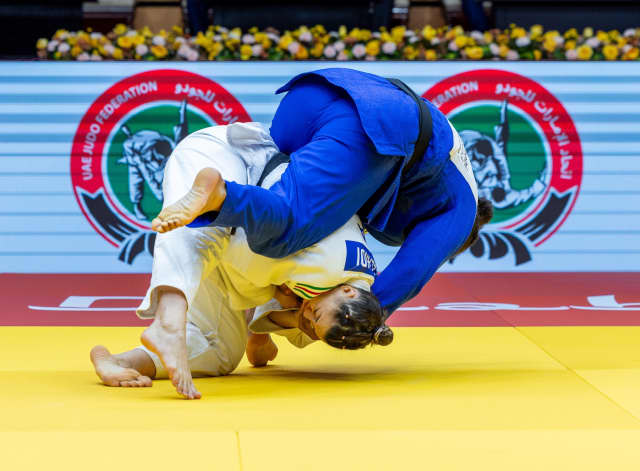“The first point is that the refereeing was very consistent today. Video reviews were generally used only to check situations that had difficult angles or to confirm a hansoku-make decision.
I like to see that many referees are making very good progress. There are only small details to correct at this level but we are seeing self assurance and independence that follows the right line, as well as the skill to officiate accurately according to the rules. For many parts of the day they haven’t needed supervisor support, they don’t even look towards the commission. This is how referees can be selected for the Olympic Games. We need those who can make decisions on the tatami right now, immediately when an action occurs. During referee training sessions the directors, who have all completed the IJF Academy courses and studied the rules continuously, we study previous events’ hansoku-make situations, all infringements and the various characteristics of ippon and waza-ari. Everyone is together and that helps this progression.
On to the judoka and I must say that -100 kg was such a high quality category, with many world medallists and other high level athletes. A world champion comes here knowing he must confirm his ability but Adamian really struggled with Korrel. The Dutchman clearly prepared well in advance and although Adamian won in the end, it was not the fight he expected. Performance analysis is essential!
Another fight, between Iddir (FRA) and Korrel, showed again the importance of performance analysis, perhaps even more so than in the Adamian fight. Korrel had a good collar grip and Iddir had a good seoi but Korrel knew it was coming and was falling to the side deliberately to look for shime-waza. He found it and won with it. It looked like perfect preparation and a clear instance of perfect analysis done with his coaches. This is high level work and it produces results.
I enjoyed the -90 kg semi-final contest between Sungho Lee (KOR) and the young Spanish competitor, Mosakhlishvili. I liked Lee attacking with ashi-waza, sutemi-waza and also seoi-otoshi variations and he had many techniques on both sides. This contest was won at the end of a long golden score period when there was a chance for the Spanish judoka and he took it. Taking opportunities is important, finding inner resources when really under pressure.
There are some new faces at +78 kg, such as the young Italian Simonetti who lost the semi-final but in the first rounds did a really good job. She used her movement to win against much bigger opponents, obeying the core principles of judo technique. At only 20 years old, a bronze medallist from the 2022 junior worlds, she is a great prospect for the future.
At -78 kg Bellandi is strong and always brings that strength to the fights. She only changed category a relatively short time ago, after the Games and already she is world number one and a world medallist. Not losing weight for competition is good for her and for her attacking style. She is always going forward to look for a positive win; it’s the ethos we want. She kept her style throughout the day even if the final was a bit more complicated with the gripping and resistance of the French judoka.
Lastly, I want to say to the participants that using the head in defence is rewarded by hansoku-make and that offers them no possibility to continue in the fight. However, if they stop using their heads and manage to find their side, defending properly with their movement, perhaps with a careful ukemi, they can take a waza-ari against them and then continue to try to get the score back. We have to change the mentality throughout the competitive community to stay away from any action which can cause an impact with the head first, whether in attack or defence. This has been a focus for some time and very good, capable judoka are losing contests because they don’t consider this rule correctly. It is in place to protect our whole judo family from potential injury. Coaches must teach correctly and athletes must learn and apply correctly.”
We have reached the end of the 2023 Abu Dhabi Grand Slam and are now preparing to move on to the IJF World Championships Kata, also being hosted by the UAE Judo Federation.
Catch up with the Golden Score show, all statistics and videos with a premium subscription to JudoTV.





